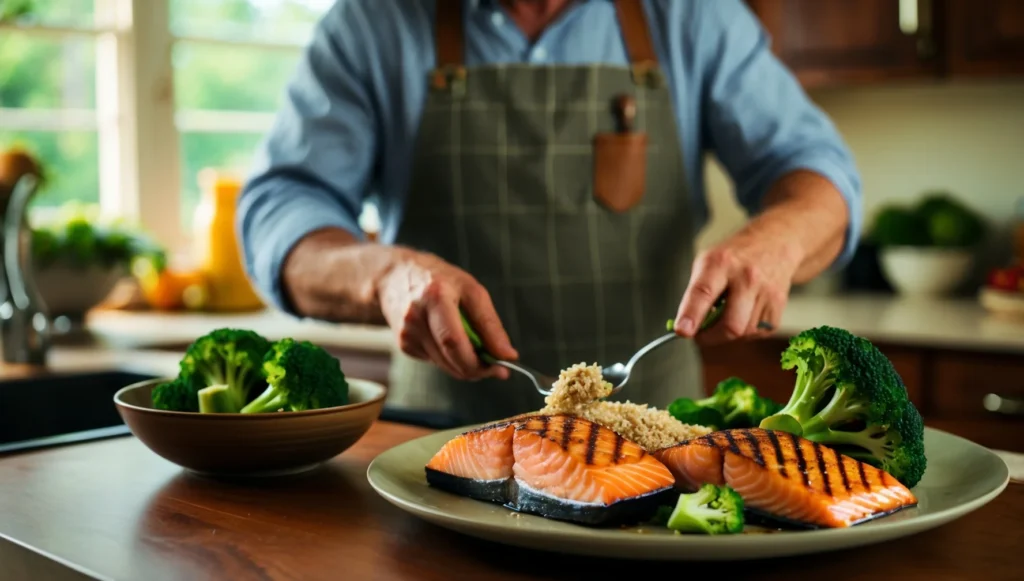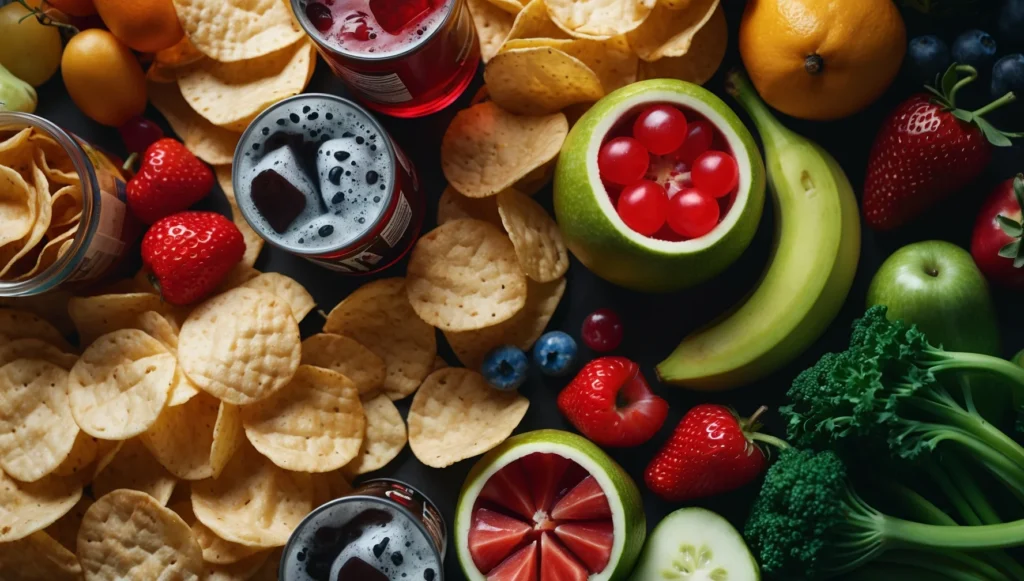As men age, their nutritional needs change, and certain foods can have a more significant impact on health. after 50, it’s essential to focus on foods that support vitality and avoid those that can contribute to chronic conditions like heart disease, diabetes, and obesity. in this guide, we’ll explore the foods men over 50 should limit or avoid to maintain optimal health.
Why Is Nutrition So Important After 50?
After 50, metabolism slows down, muscle mass decreases, and the risk of chronic diseases increases. poor dietary choices can exacerbate these changes, making it harder to stay healthy and active. by avoiding harmful foods, you can reduce your risk of illness and improve your overall well-being.
How Food Choices Impact Health
- Heart Health: Certain foods increase cholesterol levels and blood pressure, raising the risk of heart disease.
- Blood Sugar Control: Sugary and processed foods can lead to insulin resistance and type 2 diabetes.
- Digestive Health: Low-fiber diets can cause constipation and digestive issues, which are common in older adults.
“what you eat today shapes your health tomorrow—especially after 50.”
Foods to Avoid for Better Health
Here’s a breakdown of the foods men over 50 should limit or avoid, along with healthier alternatives.
1. Processed Meats
Processed meats like bacon, sausages, hot dogs, and deli meats are high in sodium and preservatives. they’ve been linked to an increased risk of heart disease, stroke, and certain cancers.
Healthier Alternatives
- Opt for lean proteins like chicken, turkey, or plant-based options such as beans and lentils.
- Choose nitrate-free or low-sodium versions if you crave deli meats.
2. Sugary Beverages
Sugary drinks like soda, energy drinks, and sweetened teas are loaded with empty calories that can lead to weight gain and insulin resistance.
Healthier Alternatives
- Drink water, herbal teas, or sparkling water with a splash of lemon or lime.
- If you need a caffeine boost, opt for black coffee or unsweetened green tea.

3. Refined Carbohydrates
White bread, pastries, cookies, and other refined carbs spike blood sugar levels and provide little nutritional value. they can also contribute to weight gain and inflammation.
Healthier Alternatives
- Swap refined carbs for whole grains like brown rice, quinoa, oats, and whole-grain bread.
- Snack on fruits, nuts, or vegetables instead of chips or crackers.
4. Trans Fats
Trans fats, found in fried foods, baked goods, and some margarines, raise bad cholesterol (LDL) and lower good cholesterol (HDL). they’re strongly associated with heart disease.
Healthier Alternatives
- Use olive oil, avocado oil, or coconut oil for cooking.
- Choose baked or grilled foods instead of fried options.
5. High-Sodium Foods
Excess sodium can lead to high blood pressure, a major risk factor for heart disease and stroke. many processed and packaged foods are surprisingly high in salt.
Common High-Sodium Culprits
- Canned soups and sauces
- Frozen meals
- Salty snacks like chips and pretzels
Tips to Reduce Sodium Intake
- Read food labels and choose low-sodium options.
- Cook at home using fresh ingredients instead of relying on prepackaged meals.
6. Sugary Desserts
While occasional treats are fine, regularly indulging in sugary desserts like cakes, cookies, and ice cream can lead to weight gain and blood sugar spikes.
Healthier Alternatives
- Satisfy your sweet tooth with fruit, dark chocolate (70% cocoa or higher), or yogurt with honey.
- Make homemade desserts using natural sweeteners like dates or maple syrup.
7. Alcohol in Excess
While moderate alcohol consumption may have some health benefits, excessive drinking can harm the liver, increase blood pressure, and contribute to weight gain.
Guidelines for Moderate Drinking
- Limit alcohol to one drink per day.
- Choose red wine, which contains antioxidants, over sugary cocktails or beer.
8. Fast Food
Fast food is often high in calories, unhealthy fats, sodium, and sugar. frequent consumption can lead to weight gain and other health issues.
Healthier Alternatives
- Prepare meals at home using fresh ingredients.
- If dining out, choose grilled or steamed options and skip the fries or sugary drinks.

The Benefits of Avoiding These Foods
By cutting back on these unhealthy foods, you’ll experience numerous benefits, including:
- Improved heart health and reduced risk of stroke
- Better blood sugar control and lower risk of diabetes
- Enhanced digestion and reduced bloating
- Increased energy levels and better weight management
Tips for Making Healthier Food Choices
Transitioning to a healthier diet doesn’t have to be overwhelming. here are some practical tips to help you make better choices:
1. Plan Your Meals
Meal planning ensures you have healthy options on hand and reduces the temptation to grab unhealthy snacks or fast food.
2. Shop Smart
Stick to the perimeter of the grocery store, where fresh produce, lean proteins, and dairy products are typically located. avoid the aisles filled with processed and packaged foods.
3. Practice Moderation
You don’t have to eliminate your favorite foods entirely. enjoy them in moderation as part of a balanced diet.
4. Stay Hydrated
Sometimes thirst is mistaken for hunger. drink plenty of water throughout the day to stay hydrated and curb unnecessary snacking.
Frequently Asked Questions About Foods to Avoid After 50
Why Are Processed Foods Harmful?
Processed foods are often high in unhealthy fats, sodium, and added sugars, which can increase the risk of chronic diseases like heart disease and diabetes.
Can I Still Enjoy Treats Occasionally?
Yes, occasional indulgences are fine as long as they’re part of a balanced diet. moderation is key to maintaining long-term health.
How Can I Reduce Cravings for Unhealthy Foods?
Focus on eating nutrient-dense foods that keep you full and satisfied. staying hydrated and managing stress can also help reduce cravings.



